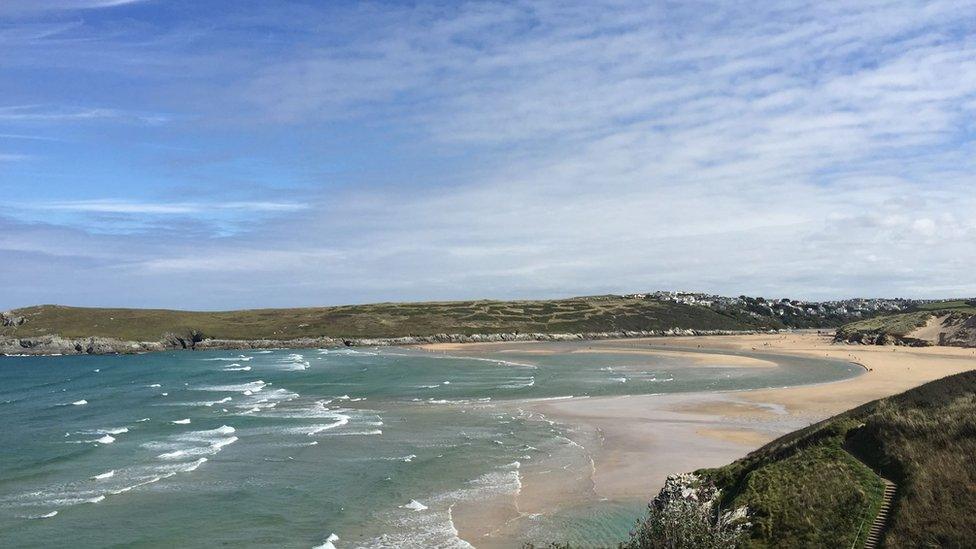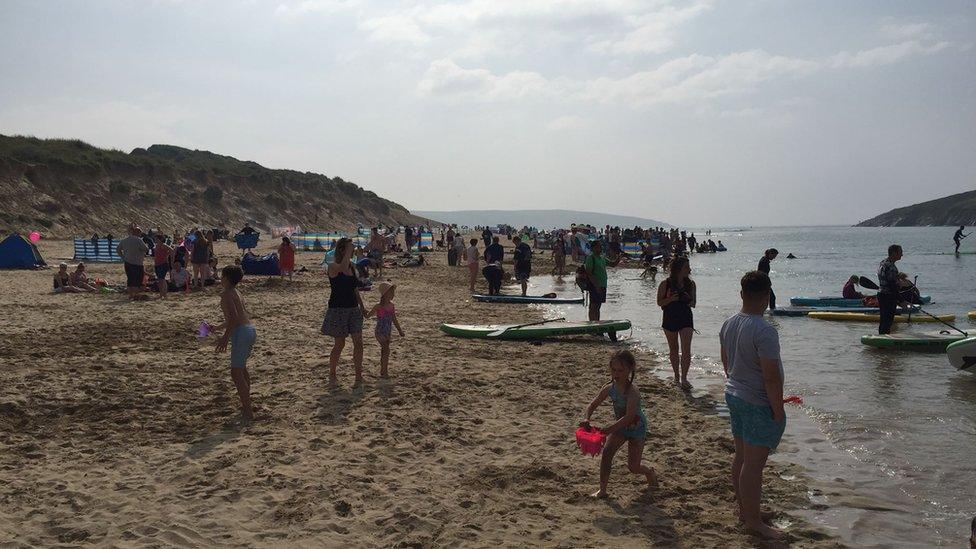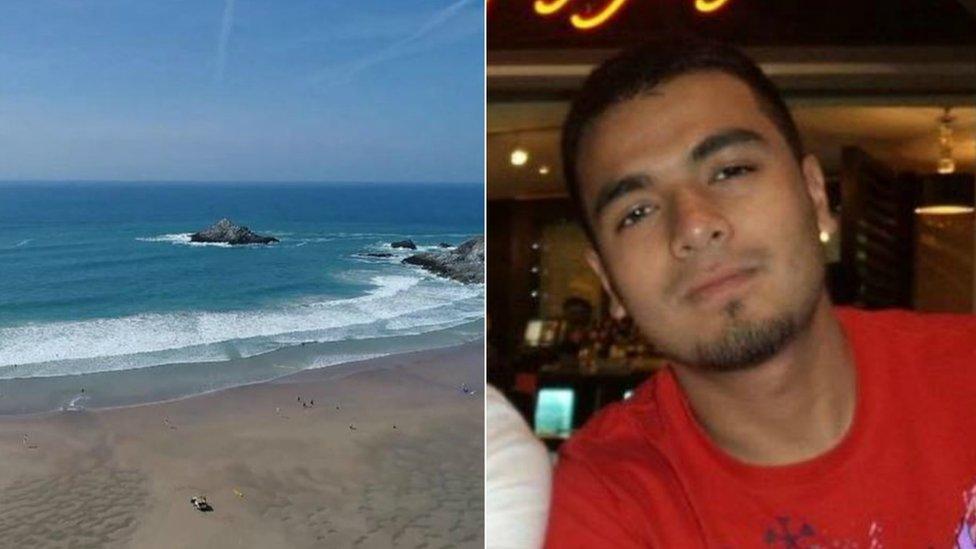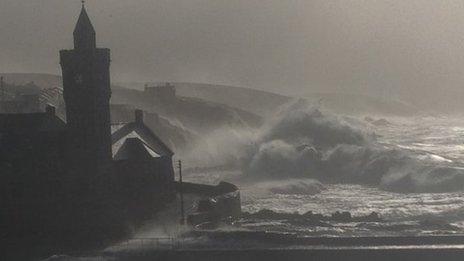More rescues at 'unpredictable' storm-damaged Crantock beach
- Published

The river Gannel now weaves a course across Crantock beach
Life saving groups have said a popular beach has become "unpredictable" since storm damage five years ago, leading to more incidents.
The RNLI said there were 20 rescues at Crantock beach in 2013, with the number steadily increasing to 70 in 2018.
In 2014, storms damaged a wall that altered the course of a river across the Cornish beach.
A new report has found potential solutions to replace the wall could cost more than £2m.
The report commissioned by the Duchy of Cornwall concluded the river was showing no sign of reverting to its course naturally.
'Magic cheque'
At a public meeting of the Gannel beach study steering group, the RNLI said the beach had become "unpredictable and dynamic".
The damaged structure was a retaining wall that kept the river along the northern edge of the beach.
Without the wall, the river has been free to flow across the beach, changing tidal patterns and creating rip currents.

Crantock beach is popular with locals and visitors
It has also caused sand dunes at the top of the beach to recede as the river eroded their base.
Dr Ben Dobson from Crantock Parish Council, who sits on the steering group, said: "This summer we have had thousands of people on the beach and there have been no serious accidents so there is every reason to come to our beautiful beach."
The report found replacing the training wall could cost as much as £2.4m, depending on the materials used, and could require significant ongoing maintenance costs.
The beach is owned by the Duchy of Cornwall and the National Trust, but the meeting was told "it is impossible to imagine landowners will produce a magic cheque".
If the wall was to be replaced, the steering group would apply for grant funding and environmental licences.
The steering group was looking to implement a beach safety plan to improve education of people using the beach so they could do so safely.
It said an increased lifeguard presence could form part of the solution.
- Published21 August 2017

- Published5 February 2014
